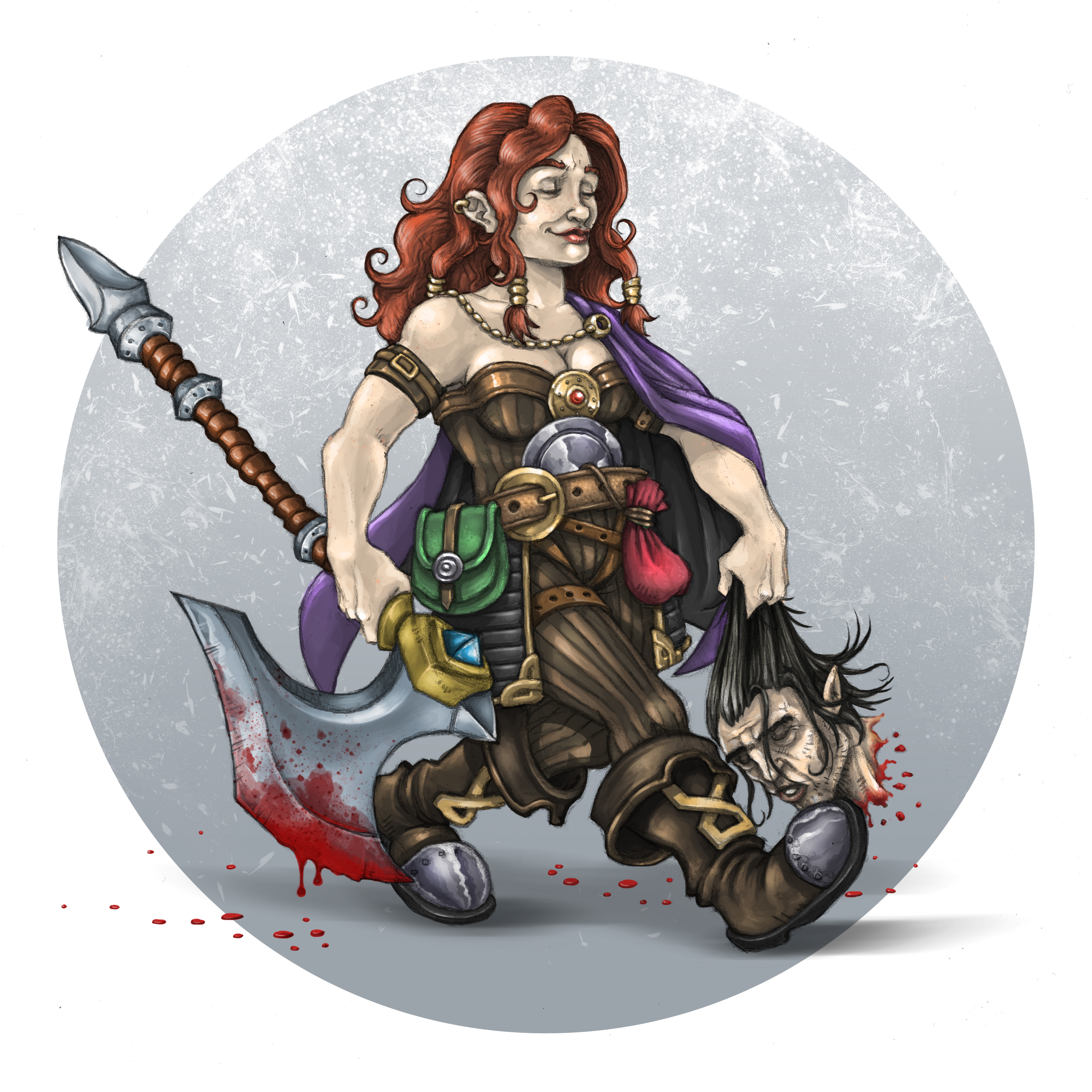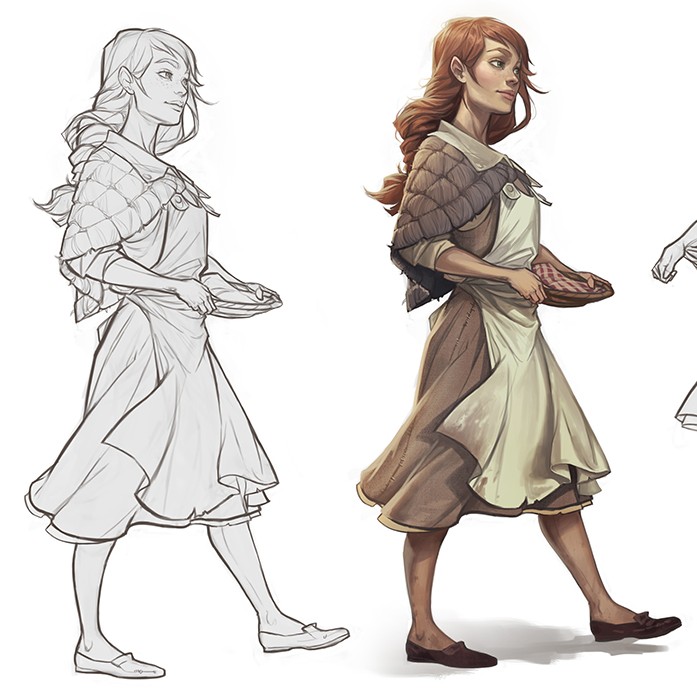As I’m sure many of you do, I harbour a love for computer games – particularly RPGs – that moment when you level up and watch the golden sparks fly is addictive. Perhaps I’m revealing too much of the geek in me, but seeing those numbers next to my various skills tick up is just… moreish. Often I’ll find myself engaging in an utterly mundane task just to get better at it. In Skyrim I’ve been known to follow six inches behind an enemy for twenty minuets just to level up my stealth.

Seriously – if there was an option to make spoons just so I could get an ability point or two for my blacksmithing I’d have done it. So I got thinking – how useful would that attitude be if I could apply it to my career?
Don’t get me wrong, I do a fair amount of practising and try to keep abreast of changes in the industry, but that’s not what I’m talking about here. If you try and apply that to game terms, then it’s just one never ending experience sink and you’ll only level up… well… never.
It’s not a revolutionary concept, and chances are that the vast majority of you are already doing this with your client projects, but dividing one big task into lots of smaller steps is a hugely productive exercise. Projects seems to fly by when we’re constantly ticking off tasks and passing milestones, but when it comes to ourselves and our personal development, we don’t seem to bother. Or rather we have things on our to do lists like learn coding, or get better at illustration. What use are tasks like that? That’s the Skyrim equivalent of escaping from prison at level 1 with a rusty dagger and one shoe, and then being asked to slay Alduin the World Eater, King of the Dragons and Nordic God of Destruction.
It’s just not playing fair is it?
Last week I asked on the Design Range Facebook page when the last time was that you sat down and made a concious effort to improve was, and Scott D told me that although he made plans and gathered resources together he still didn’t always find time to focus on improving. I believe that’s true of a lot of us, me included, but I also think it’s because we don’t always define what ‘improving’ is.
The first step you need to take is defining what a level actually is for you. Take a solid look at your services and pick a skill that you want to improve in, then break that skill down even further into various disciplines and pick one, so what you should have is something like this:
| The Service | | The Skill | | The Discipline |
| Illustration | | Digital Painting | | Painting metal |
| Web Design | | CSS | | CSS animations |
| Branding | | Lettering | | Compositional Hierarchy |
| Wizard | | Offensive Spells | | Fireball |
Once you’ve focused down into the discipline you want to improve on, you need to decide exactly where you want to get to. I’m not talking about end goals here, nobody is expecting you to go from finger painting to Da Vinci, all we’ve done here is define the category you’re going to be ploughing those experience points into. Think realistically about where you are now and then think about what the next step is. Again – this is not where you ultimately want to be, all you want to be aiming for is the next step, all you want to do is go up one level. So take a look at your peers and at artists you admire and try and find someone who is only just better than you at this very precise discipline (you may have go back a few years in their portfolio if they’re particularly good). That’s the next level, clear and defined.
Now you need to actually start improving and clocking up those experience points. The first port of call should be a straight up google search – “how to get better at x”. The internet is full of tutorials and courses, so chances are your top few results will yield something useful, especially if the discipline you’re focusing on is technique based. Learning CSS animations for example is a straight forward process of getting to grips with and understanding the code, so a tutorial for something like this would be perfect.
However – what if the discipline you want to level up is style based? Personally I’ve been working on levelling up my illustration, so say I did a google search for “how to get better at painting metal”, I’m going to struggle to find exactly what I need. Not only do I need to specify that I want to be able to visually paint a metallic texture, but that I want to do it digitally, and in my own style… tricky. What you need to do in an instance like this is go back to the artist who is at the level you’re aiming for, and then start to look through everything they’ve ever said. A lot of the artists I follow have written a tutorial or two at some point in their career, or maybe they’ve filmed the process of creating one of their illustrations – you can get so so much help from something like this.
Failing that, you could try reaching out to them directly. People are friendly, and so long as you’re respectful of their time then I’d wager most people out there would be happy to help you out. If you’ve defined your level properly, then your email to them should be super short and precise allowing them to be able to respond in kind, offering the precise advice that’s exactly what you need. Think of it this way – if you got an email from a client you had recently built a website for saying “how do I schedule a blog post?”, you are far more likely to respond right away with the exact advice required than if you received an email that says “can you tell me how to use my website?”.
Another tip by the way, if you’re not having any joy from that person is to look at people they follow and that follow them. Chances are that they’ll also share a similar style and are at varying levels that might be useful to you.
If all else fails, it can be a very useful practice just to sit and look, really look, at that artists work and try and figure out for yourself where you’re styles differ and what you need to do to change and improve.
One last thing I will mention on this style business is that you don’t want to imitate someone else. You may look at another artist or photographer or designer, and think they’re amazing, but if their style is not a natural progression of your own, then they’re no use to you. Levelling up is not about changing your style, it’s about fixing the parts of your style that are letting you down.
For example, I’m happy right now with the progress I’m making with illustration, but I feel like my cloth textures are really letting me down, so I’ve looked for an artist that has a similar style to me and does cloth far better, in this case an artist called Charlie Bowater. I’ve then gone back in her portfolio to try and find an image that’s where I think my next step is, and that’s what I’m trying to aim for.
| My cloth texture that sucks | Charlie’s amazing cloth texure | |
 | |  |
Now that you know exactly what you’re aiming for and exactly how to get there, you should know exactly when you level up. Congratulations. Down side to this is that games do it far better than real life. In a game, you’ll see a banner declaring your new level spread across the screen as golden lights dance around your character. If you don’t know what I’m talking about here, then just watch the video below (my personal favourite is at 0:36).
So make sure you have something ready. Perhaps you could put a load of balloons and confetti up on the ceiling and then when you pull the ‘level up’ lever they all fall down and music plays and stuff… Or maybe you just make sure you have a cold beer in the fridge. Whatever you do, don’t let it go unannounced. You’ve worked hard and earned this step forward, so make sure you have something, some little treat that you can truly say you’ve achieved.
The way I’ve described this process makes it seem very incremental, but in reality what often happens is even when you’re focusing on one disciples you may actually improve several by accident. After all, if you focus just on being able to do 50 pull ups, you’re probably going to get better at push ups too, even though that’s not what you were working on.
Although that sounds good, it can actually cause a bit of an issue professionally. If your style has noticeably advanced then it’s going to look different to the previous work in your portfolio, and until you start getting contracts for your updated style, that portfolio isn’t going to change. Do you see where I’m going with this? If a new client contacts you, it’s because they want the style that’s in your portfolio, and although you may see that as inferior to what you can do now, the client will have every right to be upset when you turn in work that looks like nothing they’ve seen before. I’m going to talk about this a bit more in the future as there is actually a fair bit of advice you can use in a situation like this and I think it warrants it’s own article, but for now, just make sure you’re aware of it, and make your new clients aware in turn.